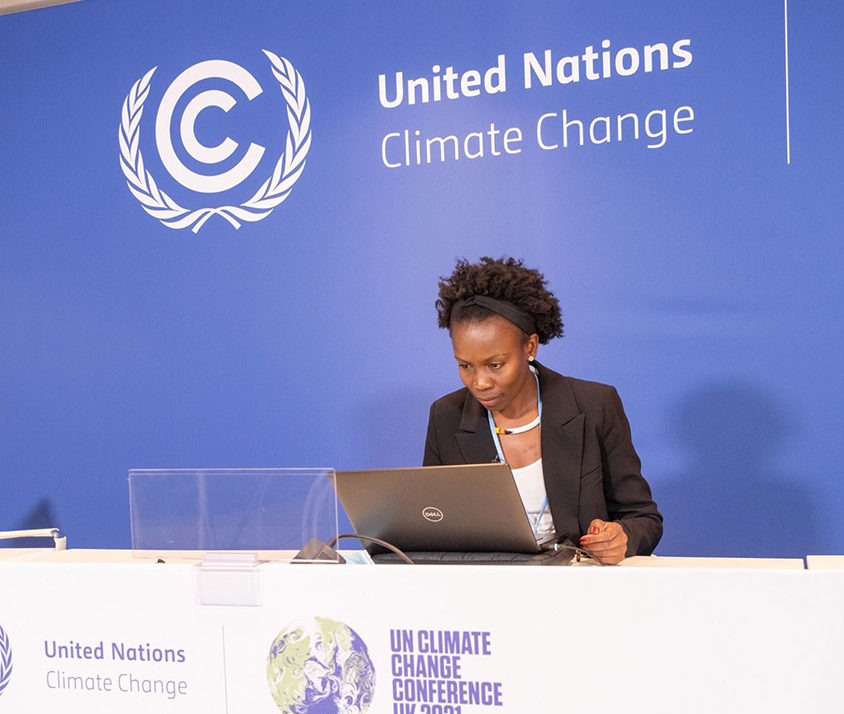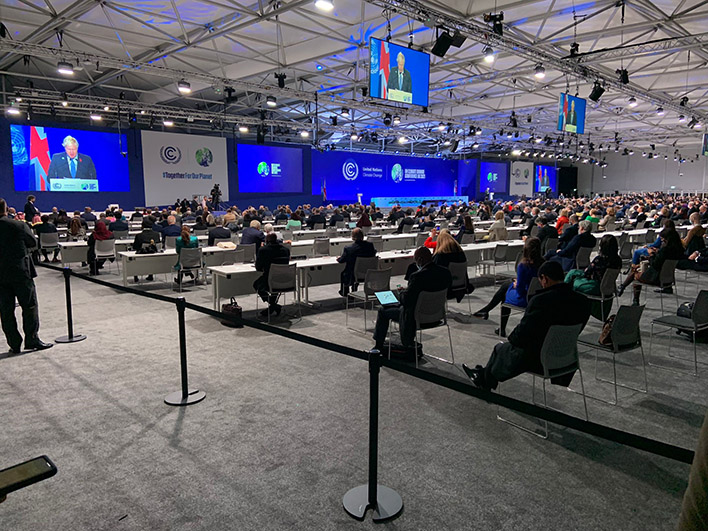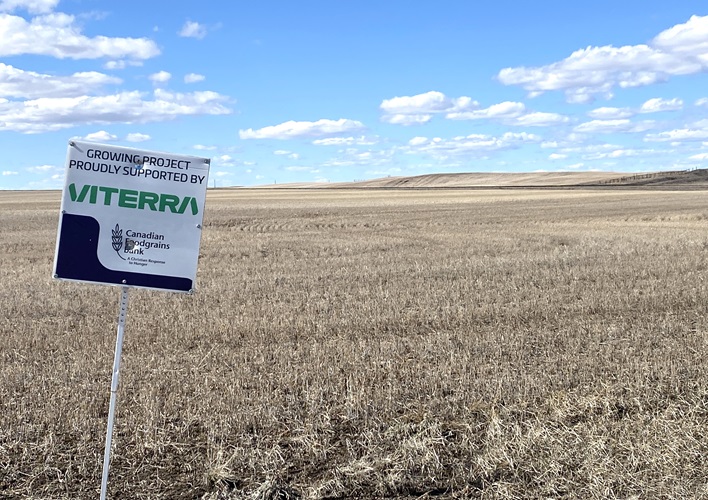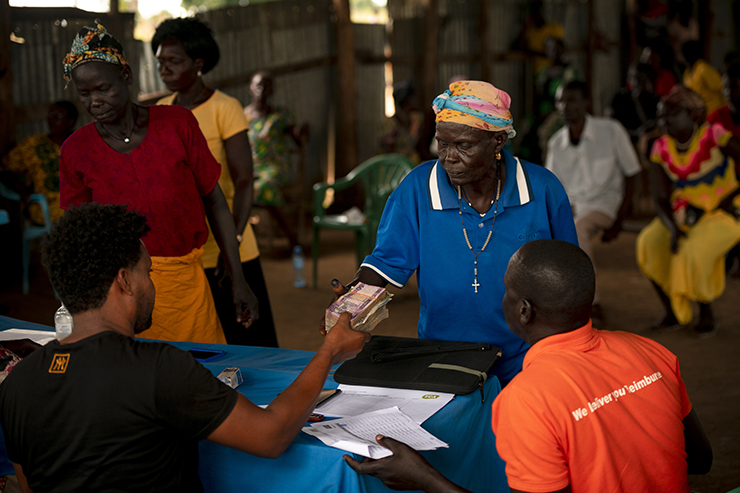Highlighting the importance of supporting small-scale farmers in adapting to climate change and building their resilience to climate emergencies.
In a nutshell, that’s what brings a Canadian Foodgrains Bank delegate to COP26, the United Nations climate change conference, each year. It’s part of our commitment to supporting the ability of small-scale farmers around the world to adapt to a changing climate. Many of the people who are most-affected by climate change are people farming on small plots of land, often less than two hectares, who depend on what they’re able to grow and then eat or sell for their survival.
The COP is where the world’s decision-makers gather to increase cooperation and action on climate change. For the first time, the Foodgrains Bank co-hosted two side events at the conference, promoting women’s land rights and the importance of supporting women in building climate-resilient food systems.
After many years of advocating on behalf of small-scale farmers affected by a changing climate, we’re beginning to see some progress.
“While we did see some frustration at COP over the slowness over the pace of change, we also saw important steps being made to recognize the impact of climate change on food systems, and some announcements that will reduce the number of people going to bed hungry each night,” says Mueni Mutinda, a policy advisor for the Foodgrains Bank.
Mutinda was the Foodgrains Bank representative who attended the conference in Glasgow from October 31-November 12.
“We are especially encouraged by the announcements of Canadian funding that will address both climate and food issues, including support for research, for adaptation, and for the least developed countries,” says Mutinda.
“Nature-based solutions can increase agricultural production and resilience, promote food security, mitigate climate change and protect biodiversity.”

Foodgrains Bank policy advisor and COP26 delegate Mueni Mutinda participates in one of our side events at the 2021 conference.
Mutinda recently completed a five-year term managing a Government of Canada-funded conservation agriculture program in East Africa. She’s seen firsthand how appropriate on-farm practices enable small-scale farmers to improve their livelihoods, while also improving the natural environment.
For her, critical next steps now that COP is over include encouraging the Canadian government to ensure funding for nature-based solutions including supporting small-scale food producers and building resiliency for their communities. Currently, only two percent of funding for climate financing goes toward supporting small-scale food producers, despite the vulnerability they have to climate change.
“We know Canadians care about our changing climate, and about the vulnerable people who are most-affected by it. Building more resilient food systems will help small-scale food producers respond to urgent crises, such as the health pandemic and climate change,” says Mutinda.
“Together, we can help build a healthier, more prosperous and food secure world for all of us,” she says.
In particular, the Foodgrains Bank is calling on Canada to:
- Ensure at least half of new climate finance targets adaptation.
- Focus on the needs of those who are most vulnerable to hunger and poverty, especially women.
- Prioritize support for nature-based solutions that build resilient food systems
Let your elected officials know you care about Canada’s support of small-scale food producers vulnerable to climate change by sending an email through our online letter builder!




